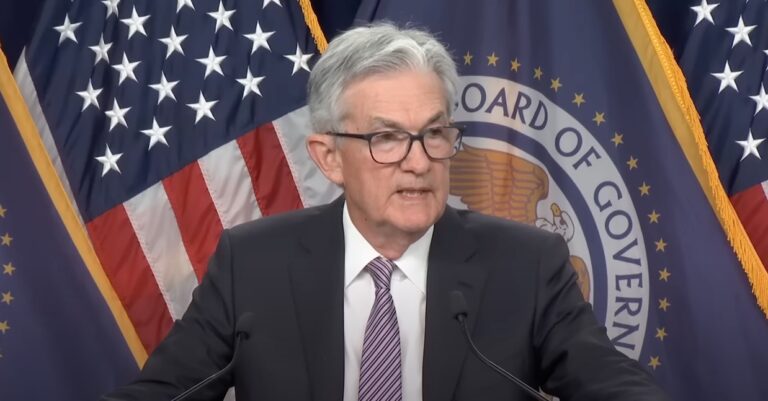In a recent appearance on CNBC’s ‘Squawk Box,’ Senator Rick Scott expressed his concerns regarding the Federal Reserve’s handling of its balance sheet and the alarming rise of antisemitism on college campuses. The interview, conducted by co-anchor Joe Kernen, delved into the senator’s stance on accountability for the Federal Reserve, particularly its Chairman, Jerome Powell.
Senator Scott was critical of the Federal Reserve’s failure to significantly reduce its balance sheet, which has seen a substantial increase over the years. He pointed out that under Chairman Powell’s tenure, the balance sheet had doubled from $4.5 trillion to $9 trillion. Scott emphasized that despite Powell’s promises, the balance sheet’s reduction has been insufficient and slow, highlighting a lack of accountability for the financial crises of 2008 and more recent events involving Silicon Valley Bank.
The senator argued that the rapid increase in the balance sheet during the COVID-19 pandemic kept long-term interest rates artificially low, which should have been regulated by the market instead. He also criticized the Federal Reserve for losing money on an annual basis for the first time since its inception due to Powell’s decision to purchase treasuries and rapidly raise interest rates.
Addressing the potential consequences of a tighter financial condition, Senator Scott acknowledged that while it could lead to a ‘hard landing’ for the U.S. economy, it was necessary to face reality and live within means. He pointed out that since 2019, the U.S. population has increased by 1.8%, while the federal budget has surged by 5%. Scott called for a return to realistic financial practices to mitigate the problems caused by past mistakes.
Shifting the conversation, Kernen and Scott discussed the rise of antisemitism, particularly in the wake of the Israel-Hamas conflict. Senator Scott recalled his efforts to combat antisemitism during his time as Governor of Florida, where he took action against university presidents to control the situation. He expressed disappointment at the prevalence of antisemitism in the country and stressed the importance of collective responsibility in calling out and addressing such discrimination.
On 1 November 2023, the Federal Reserve’s decided to pause interest rate hikes. Fed Chair Powell, after the FOMC meeting, announced that despite the aggressive monetary tightening over the past year, the federal funds rate would remain at 5.25% to 5.5%. Powell reiterated the Fed’s dedication to reducing inflation to 2% sustainably, noting the economy’s strength and persistent labor demand as potential inflationary risks. He suggested that if these conditions persist, they might necessitate further policy tightening.
The Fed is also observing the financial conditions that have tightened due to factors like higher bond yields. Powell highlighted the need for careful policy progression amidst these uncertainties. The central bank’s future decisions will be data-driven, aiming for a policy stance that balances inflation reduction with stable long-term inflation expectations.
In response to the Fed’s stance, Arthur Hayes, the Co-Founder and former CEO of BitMEX, expressed optimism for cryptocurrencies, particularly Bitcoin, on social media. Dubbing the Fed’s cautious approach as the “Powell Pivot,” Hayes suggested that this pause might signal the need for additional policy measures, even as inflation rates hover above the target. He shared his strategic shift towards increasing his cryptocurrency holdings, moving funds from Treasury bills. Hayes anticipates that the Fed’s halt may lead other central banks to introduce monetary stimulus, forecasting “massive stimulus” from China, Europe, and Japan. He concluded with a bullish outlook for digital assets, implying that an increase in global liquidity could significantly benefit cryptocurrencies like Bitcoin.









